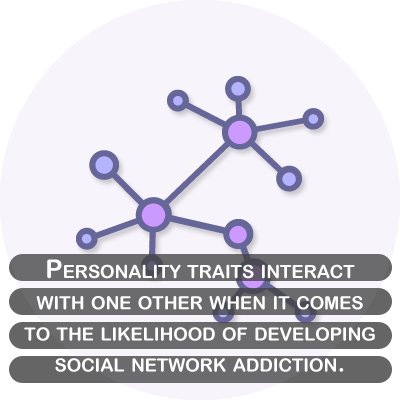A combination of personality traits might make you more addicted to social networks
The effect of broad personality traits such as neuroticism and agreeableness on social network addiction.

Main titles
“There has been plenty of research on how the interaction of certain personality traits affects addiction to things like alcohol and drugs. We wanted to apply a similar framework to social networking addiction.” - Isaac Vaghefi, assistant professor of management information systems at Binghampton University.

- Three broad personality domains were found to be related to social network addiction, neuroticism, conscientiousness and agreeableness.
- The other two broad domains of the Big5 personality model, extraversion, and openess to experience did not play much of a role in the likelihood of developing social network addiction.
- Personality traits interact with one other when it comes to the likelihood of developing social network addiction.
- Neuroticism and conscientiousness had individually positive and negative roles in the likelihood of developing addiction. The more neurotic the greater the probability and the more conscientious, the less the probability.
- When an individual tested high on both variables, then neuroticism seemed to moderate the effects of conscientiousness. Therefore a conscientious person who also scored high in neuroticism would still be vulnerable to developing a social network addiction.
- Agreeableness on its own had little affect on the probability of developing addiction, however low levels of both agreeableness and conscientiousness amplified the probability.
- In addition, and contrary to what would be expected, high levels of both agreeableness and conscietiousness increased the probability of developing addiction.
Study: Binghampton University

 vneo
vneo 











